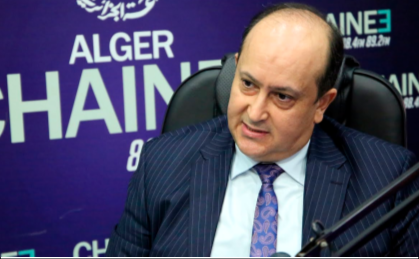Physical Address
Indirizzo: Via Mario Greco 60, Buttigliera Alta, 10090, Torino, Italy
Physical Address
Indirizzo: Via Mario Greco 60, Buttigliera Alta, 10090, Torino, Italy


By presiding on Thursday, a working meeting, which can be qualified as exceptional on Thursday, devoted to the trade sector and the strengthening of the regulatory mechanisms of the national market, President Abdelmadjid Tebboune clearly reported what the priorities of the new interim Prime Minister, Sifi Ghrieb, which he had just appointed. This is the supply of the national market to various products, in order to avoid any form of disruption or shortage in large consumption products. This immediate emergency, to which it is necessary to respond to maintain the climate of serenity and stability in the country, joins a more strategic emergency which concerns national production, in industry and agriculture, whose volume and quality must be reinforced to meet the needs of citizens and even export surpluses in order to free oneself from the dependence on the sales of hydrocarbon revenues which undergo fluctuations in the global market.
The requirement for the strengthening of industrial production was highlighted during the previous meeting that President Tebboune devoted to the transport sector.
Two significant decisions were made during this meeting: the immediate import of 10,000 new passenger transport buses to replace the old and the immediate and massive import of various types of tires for vehicles. Algeria does not produce enough bus, and even a situation for tires. Projects in the automotive sector are being launched.
It is certain that more attention is given to them since their importance has been verified.
Observers have not failed to recall, on this occasion, the fate which is reserved for a number of industrial projects which cannot yet start accusing delays of several years, sometimes five years in some cases.
The reasons for slowdowns, even blockages, are known, underline these same observers who impute them to administrative and banking circuits. It is, they specify, the absence of operating budget or raw materials. It is not uncommon, they add, that the problem is further upstream, in late investors to comply with the legislation concerning the risk of danger (fire, explosion, dissemination in the atmosphere of toxic products), but the visa of environmental services and that of civil protection depends on this prerequisite. These services cannot put the provisions of Algerian law on the back and up, because they are considered to be an obstacle to the launch of a project.
It is a question of removing the obstacles to investments to promote economic growth, but by remaining within the legal framework in force which also includes the system of laws and regulations dealing with the risks to the environment.
Many industrial accidents are due to the absence of a risk prevention plan and non-compliance with security standards in the industrial facilities concerned while these are legal obligations.
Obviously, there are industrial projects that can be blocked for bureaucratic reasons and it is easy to see and lift these blockages to let the production start.
Social networks often cite these easy to solve cases, although their number is certainly more important than that is publicized.
It should not be lost in sight that President Tebboune said, a few months ago, that Algeria was determined to join the rank of emerging countries with the aim of reaching a gross domestic product (GDP) of $ 400 billion by the end of 2027. It was at the opening of the second edition of the national meeting with economic operators.
In this regard, he insisted on the imperative to release the investment initiative, especially in the industry field, where Algeria has recorded a qualitative leap, believing that “for the development, the share of industry in GDP must be increased to 13-14 %”.
In agriculture, we can congratulate ourselves on the dynamics recorded in terms of investment and production in several agricultural sectors, having contributed to the reduction of the invoice of imports of Algeria.
But, there is still a lot to do. The national agricultural census has certainly confirmed the progress but also indicated the faults to be filled: logistics (equipment, transport, storage), scientific and technical supervision. Monitoring committees are essential.
Lakhdar A.